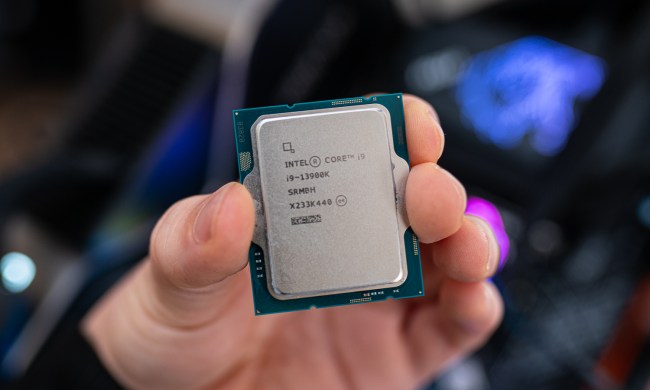Intel is planning to launch F-series versions of its 10th-generation Comet Lake chips alongside K-series and standard CPUs, bringing the total count of new-generation CPUs to 18, with as many as four versions of the same CPU in some cases. The F-series alternatives have the same core counts, clock speeds, and TDPs, but they will be sold with no onboard graphics, which could make them slightly cheaper.
The F-series alternative CPUs were first introduced with Intel’s eighth and ninth generation Coffee Lake CPUs, with the Core i3-8100F, i3-9350KF, i5-9400F, and i9-9900KF. They debuted at the same price as their counterparts with graphics, but over time we’ve seen the price of the CPUs with deactivated onboard GPUs fall to around $25 less than the non-F alternative. That’s not always the case. Sometimes the discounts can be greater, sometimes less. In general though, F-series CPUs tend to be a little cheaper. As you might expect, considering they offer less for your money.
But they also make for a more confusing CPU lineup. If you look at the standard specifications for Intel’s upcoming Comet Lake lineup, there is nothing obvious to differentiate the F-series from the non-F series, and it brings the count of new CPUs to 18, as VideoCardz reports, despite the minimal differences between some models.

As Informatico Cero’s slide leak confirms, the 10900KF is a 10-core CPU with support for 20 threads, a base clock of 3.7GHz, a “Max Turbo 3.0” boost clock of 5.2GHz, and an all-core turbo of 4.8GHz. The 10900K is a 10-core CPU with support for up to 20 threads, a base clock of 3.7GHz, a “Max Turbo 3.0” boost clock of 5.2GHz, and an all-core turbo of 4.8GHz. But it has onboard graphics.
There’s the 10900, which has the same cores, the same threads, but a slightly lower base and boost clock, and a near-half TDP if the 10900K and KF. Then there’s the 10900F, which is the same, but without graphics. And that’s just the very top-tier CPU in the lineup. There are other instances of 2-3 versions of the same CPU. That’s great for choice, and will mean there’s a CPU for everyone in the new generation — if you don’t want to buy one of the hot new AMD Ryzen 3000 CPUs that is — but it also makes for a messy and confusing lineup, even when you have plenty of specifications to compare chips on.
Still, there are some universal truths about the Comet Lake generation that differentiates it from the ninth-generation, at least. There are more cores at the top end and higher clock speeds across the board. Every CPU has hyperthreading, so Core i3 and Core i5 CPUs should have much improved multi-threaded performance than the last-generation.
Intel’s Comet Lake CPUs are expected to debut sometime in the next couple of months, with most speculation pointing to April.



